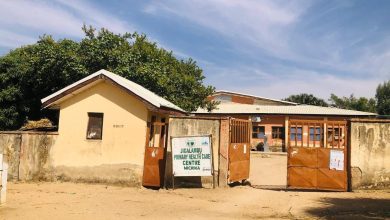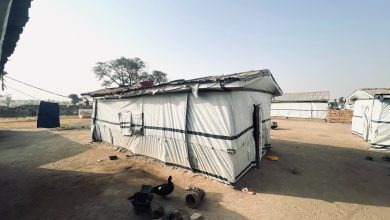Husbands Abandoning Their Families In Borno Due To Economic Hardship
It’s been over a year since Ali left his family to search for job opportunities. Not only has he not returned, but he has also not sent support back to his wife and 12 children.
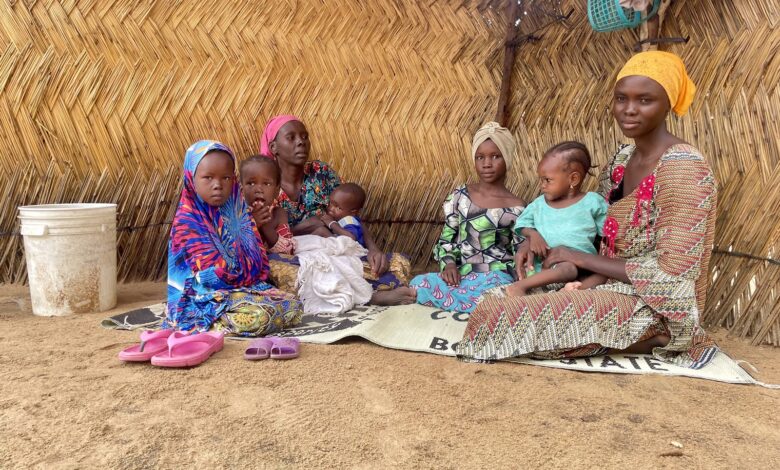
Bintu’s two co-wives, Aisha Ali and Zainab Ali, could not bear the hardship that struck their family over the past year. So, they left Bintu with her ten children and their husband, Ali Wakil, who could not cater for them and their dozens of children. Months later, Ali, too, left the family in search of work, leaving behind Bintu and their children and hoping to send money home. But he never returned, nor has he sent a naira back to them. It has been over a year now.
Bintu’s eldest child, Fatima, has lived with them since her husband died in a tragic accident. She came with her two children. Now 17, she had been married off to a labourer working at a local sand excavation site in Konduga, Borno state. Tragedy struck when the young husband was crushed to death by a truck during a sand-loading accident.
Living with her mother is another burden on Bintu, who must take care of 12 children, including her grandchildren.
Before he left them, Bintu believed her husband would bounce back but the recent economic inflation made it nearly impossible for him to earn enough money to care for his family’s needs.
With three wives and 21 children depending on him, the financial burden became an insurmountable obstacle, causing Ali to abandon his family in search of a more promising future. All of his wives gave birth to multiple children. Bintu gave birth to ten, Aisha had five, and Zainab gave birth to four. They all depended on Ali’s unstable income.
He worked as a farm labourer and did menial jobs that were hard to come by. Even if he got jobs, Bintu said, he still could not afford to buy many things.
“Before we were displaced, I used to sell foodstuff that we harvested from our farm. We were living comfortably and had enough to eat,” she recalled.
“I love my husband so much and he loved me too, but he went on to marry another two wives. I warned him, but he did not care about my advice.”
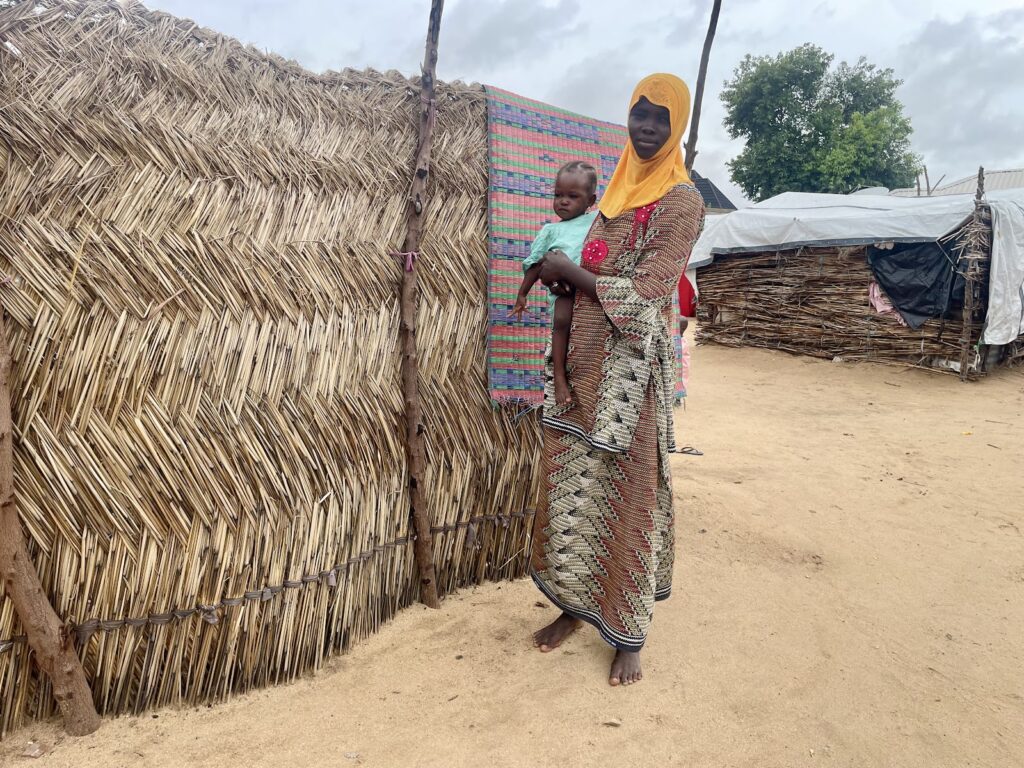
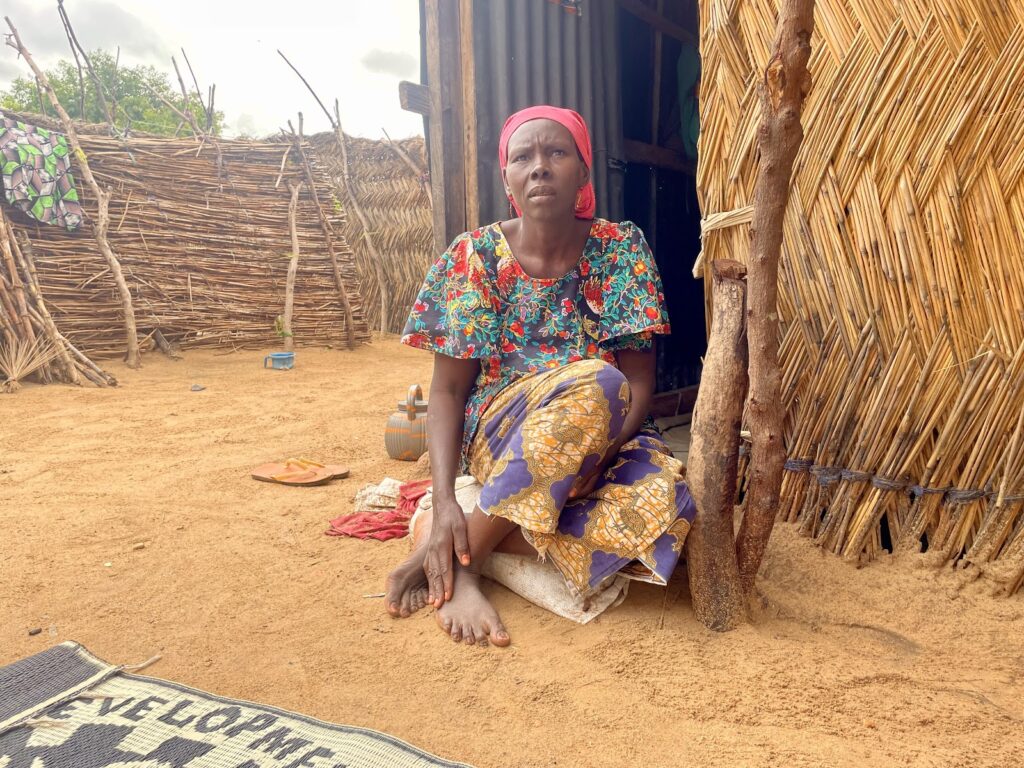
According to Bintu, her husband’s decision to marry more wives led them into the crises they were experiencing. “In a month, he could only give me 1.6kg of sorghum,” she said about her husband. “He did nothing. He could not provide food, clothes, or detergent to wash them.”
Their precarious living condition as a displaced family has gotten worse in the past year since the prices of goods and services in Nigeria soared extraordinarily. Hunger and malnutrition have become permanent members of the household. They have gone as many as three days without food and often depend on plants around them.
“I cannot produce milk for the infants. I grind small quantities of sorghum and mix it with water to feed the baby,” Bintu said.
“I go round looking for food with my children, we hardly get people to assist us because there are so many families like me on the street looking for alms. It is difficult to get something to eat.”
She sends her sons to beg for food and alms, but they usually return late in the evening with nothing.
She said cannot remember the last time she gave drugs to some of her children who took ill at some point. Because she could not afford medical care, they were forced to recover on their own.
Bintu faces significant health challenges due to the extremely short spacing between her childbirths, with an average interval of just one year. This close proximity between pregnancies led to increased health risks for both her and her children.
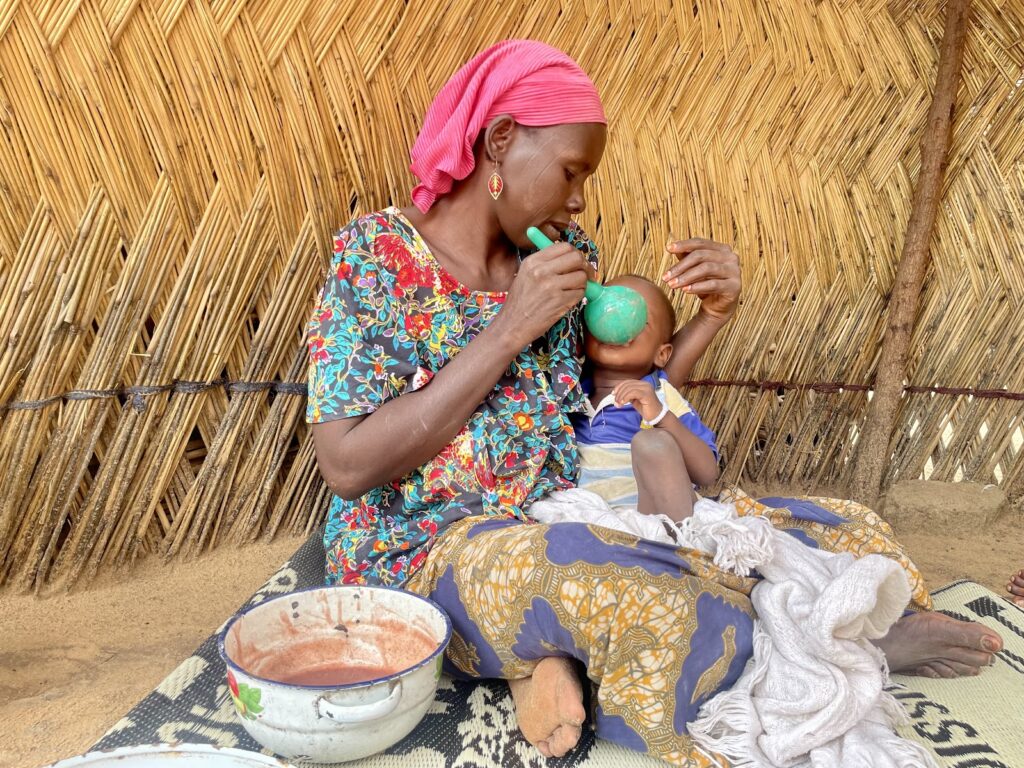
She has not heard from her husband since he left, except one time when his friend updated her about his well-being.
“I am his first wife. We got married 20 years ago when he was doing very well. Everything started to crumble when Boko Haram insurgents attacked our community and displaced us about nine years ago,” Bintu recalled.
Ali was a successful farmer before the conflict. He married two more wives at the makeshift camp they resided in Dalori, a community on the outskirts of Maiduguri.
He dreamed of providing for their every need and giving them a secure and loving home. However, as the years went by, the economic situation deteriorated, leaving him unable to put food on the table. Despite his unrelenting efforts, the stress of providing for such a large family took a devastating toll on his relationships.
While Ali was still living with his family, Bintu was engaged in menial jobs in the host community where they lived so she could complement her husband’s efforts. The burden was too much on her.
“I felt like I was drowning in responsibility,” Bintu said. “I couldn’t sleep at night, thinking about how I would feed my children the next day. The weight of it all was crushing me.”
When Ali left, it felt like a part of her “had been ripped away”. “But I had to be strong for my children. I had to find a way to keep them safe,” she added.
One of her neighbours, Salma, said they were sad about her desperate situation. “The Bintu we used to know was different,” she said. “She is now emaciated, helpless, and living without a husband to take care of her.”
The community rallies around the abandoned family, offering what little support they can. “But it’s a drop in the ocean. We need sustainable solutions to address poverty and hunger. We need to support families in crisis before it’s too late,” observed Bulama Bako, a community member.
While some may judge the father’s actions as selfish, others see it as a desperate cry for help, a testament to the crushing weight of responsibility and the devastating consequences of systemic failures and economic crises. “He is not a bad man. He is a man who feels like he has failed his family,” argued Isa, a family friend.
Bintu’s story is not exceptional and is getting increasingly common. Many other families have experienced a similar ordeal.
“[I would have fled too] if not because I am getting assistance from family and friends. The burden is too much and there is not enough work to earn enough money to cater for the family,” said Bakaka Mustapha, a resident of Dalori.
“Foodstuffs are very expensive now. The work we do doesn’t pay well. We are just surviving with uncertainties.”
He explained that his family of one wife and seven children cannot afford basic things like detergent, clothes, fare, and enough food.
Aisha Ali Indimi, a gender activist in Borno, described the prevalence of such cases as alarming.
“The present economic hardship mixed with the burden of feeding a large family are the main causes of the prevailing cases of a father leaving his children and wife in search of a better place to earn,” she said.
“But for a man who loved his family and has not returned home or even sent back money for them, the situation is really disturbing, yet it discloses the degree of the economic crises families are facing in the country.”
She further explained that women and children are at the centre of this crisis, which affects their health and well-being. This is especially the case because of the patriarchal nature of the Borno society, where men are considered the providers, making women more vulnerable when they leave the picture.
“It affects everything in the family. Hunger will set in, and the children will be rendered under the care of the streets,” Aisha said.
She recommended that traditional leaders, community members, and community-based organisations must be involved in mitigating this crisis.
She also observed that “some men are exceeding their economic status by marrying more wives and giving birth to a lot of children that they may not be able to care for, especially in a period when the country is facing great economic inflation.”
Support Our Journalism
There are millions of ordinary people affected by conflict in Africa whose stories are missing in the mainstream media. HumAngle is determined to tell those challenging and under-reported stories, hoping that the people impacted by these conflicts will find the safety and security they deserve.
To ensure that we continue to provide public service coverage, we have a small favour to ask you. We want you to be part of our journalistic endeavour by contributing a token to us.
Your donation will further promote a robust, free, and independent media.
Donate HereStay Closer To The Stories That Matter



